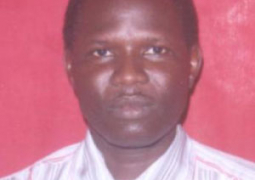Legislators across party lines expressed concern on Friday that The Gambia’s decision to break diplomatic ties with Taiwan indicated that China may be taking a harder line in pursuing Taiwan’s diplomatic allies.
Legislator Lin Yu-fang of the majority Kuomintang said the announcement by The Gambia is a significant development because it could signal that a tacit agreement between Taiwan and China on not soliciting each other’s allies has been broken.
The government needs to figure out if China played a role behind the scenes in The Gambia’s decision, Lin said.
“If it did, Taiwan has to be careful. This shows that China’s diplomatic strategy toward Taiwan has undergone a fundamental change, and that Taiwan’s relations with other diplomatic allies will also be at risk,” he said.
Legislator Tsai Huang-liang of the opposition Democratic Progressive Party said the situation with Gambia showed that the diplomatic truce that the government has been so proud of has failed.
He also warned that relations with El Salvador, Honduras, Dominican Republic, Paraguay and the Vatican are also at risk.
Legislator Hsu Chung-hsin of the opposition Taiwan Solidarity Union agreed that China has not ended its diplomatic offensive against Taiwan and urged the government to confront the issue.
The office of Gambian President Yahya Jammeh announced on Thursday that his country was ending diplomatic relations with the Republic of China (Taiwan).
The move seemed to catch Taiwan by surprise, and as of Friday afternoon, Taiwan had yet to formally announce that it had cut off ties with the small West African country.
Beijing had also not weighed in on the move, and The Gambia did not say it had established relations with the People’s Republic of China, creating some doubts about the Gambian president’s motives in making the decision.
Lin said there was a possibility that The Gambia severed ties because Taiwan was not as generous as it has been in the past, and he urged the government to assess the situation and determine if it could afford to lose more of its remaining diplomatic allies.
Under the tacit diplomatic truce propounded by the President Ma Ying-jeou administration, Taiwan and China have suspended the “money diplomacy” that previously characterized efforts by the two countries to woo each other’s allies with promises of financial aid.
But Lin’s concern reflected fears that Taiwan may have pulled back too much in granting aid to its allies.
According to DPP Legislator Hsiao Bi-khim, the MOFA’s secret diplomatic budget has fallen from NT$5.7 billion in 2008, when Ma took office, to NT$500 million in 2014, and funding in the budget for “promoting diplomatic ties” has been scrapped.
Legislator Lee Tung-hao of the minor People First Party said the government should review its flexible diplomacy strategy and devise a more diversified and substantive approach.
He suggested that the government set up a national development bank to aid diplomatic allies based on the model of an international business.
Amid the confusion over The Gambia’s move, opposition DPP lawmaker Chiu Yi-ying said the Legislature’s Foreign and National Defense Committee will ask Foreign Minister David Lin to report to the committee on the situation.
Chiu criticized Taiwan’s embassy in the West African country for not keeping on top of developments there.
Source: Agencies


